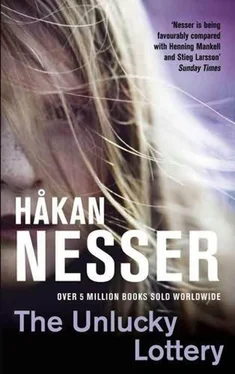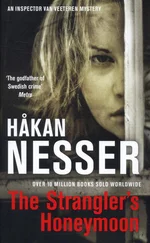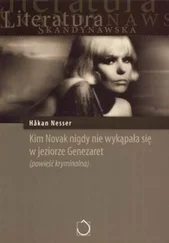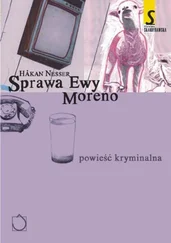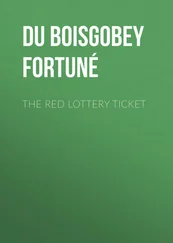‘Very nasty,’ said Moreno. ‘As usual.’
On the way home Münster called in at the scene of the crime in Kolderweg. As he was the one in charge of the investigation, for the moment at least, it was of course about time he did so. He stayed for ten minutes and wandered around the little three-roomed flat. It looked more or less as he had imagined it. Quite run-down, but comparatively neat and tidy. A hotchpotch of bad taste on the walls, furniture of the cheap fifties and sixties style. Separate bedrooms, bookcases with no books, and an awful lot of dried blood in and around Leverkuhn’s sagging bed. The body had been taken away, as had the bedlinen: Münster was grateful for that. It would have been more than enough to examine the photographs during the course of the morning.
And of course, what Moreno had said described the scene of the crime exactly.
Very nasty.
When he finally came home he could see that Synn had been crying.
‘What’s the matter?’ he asked, hugging her as gently as if she were made of dreams.
‘I don’t know,’ she said. ‘I just don’t want life to be like this. We get up in the mornings and get ready for work, and send the children off to school. We see each other again after it’s dark, we eat and we go to sleep. It’s the same all week long… I know it has to be like this just at the moment, but what if we were to snuff it a month from now? Or even six months? It’s not what it should be like for human beings, there ought to be time to live as well.’
‘Just to live?’ Münster said.
‘Just to live,’ said Synn. ‘All right, I know there are people who are worse off than we are… Ninety-five per cent of humanity, if we want to be finicky.’
‘Ninety-eight,’ said Münster.
He stroked her tenderly over the back of her neck and down her back.
‘Shall we go and take a look at the children sleeping?’
‘They’re not asleep yet,’ said Synn.
‘Then we’ll just have to be patient,’ said Münster.
It was only when he entered the police station on Monday morning that Münster remembered he hadn’t yet contacted the Leverkuhns’ children. One and a half days had passed since the murder, there was no further time to be lost. Luckily the mass media had not published any names in their quite restrained coverage of the case, so he hoped that what he had to tell them would still be news.
It was bad enough to have to be the bearer of bad tidings. Even worse if the bereaved had already been informed – and Münster had found himself in that position several times.
In order to avoid any further delay he instructed Krause to make preliminary contact – not to pass on the message itself, but to prepare the way so that Münster himself could give them the melancholy details.
After all, he had already accepted the fact that it was his duty to do so.
Half an hour later he had the first of them on the line. Ruth Leverkuhn. Forty-four years old, living up in Wernice, over a hundred kilometres from Maardam. Despite the distance involved, as soon as Münster had explained that her father had been the victim of an accident, they arranged a private meeting: Ruth Leverkuhn preferred not to discuss serious matters on the telephone.
But she was told that Waldemar Leverkuhn was dead, of course.
And that Münster was a CID officer.
So, the Rote Moor cafe in Salutorget. Since, for whatever reason, she preferred such a location rather than the police station.
And at twelve noon. Since, for some other unknown reason, she preferred to talk to the police before visiting her mother in Bossingen.
The son, Mauritz Leverkuhn, born 1958, rang barely ten minutes later. He lived even further north – in Frigge – and Münster didn’t beat about the bush. He came straight to the point.
Your father is dead.
During the night between Saturday and Sunday. In his bed. Murdered, it seemed. Stabbed with a knife.
It ‘seemed’, Münster thought as he listened to the silence at the other end of the line. Talk about cautious prognoses…
Then he heard – or at least, thought he could hear – the usual muted signs of shock in Mauritz Leverkuhn’s confused questions.
‘What time, did you say?’
‘Where was Mum?’
‘Where’s the body now?’
‘What was he wearing?’
Münster filled him in on these points and more besides. And made sure he had Emmeline von Post’s telephone number so that he could contact his mother. Eventually he expressed his condolences and arranged a meeting on Tuesday morning.
The son’s intention was to set off as soon as possible – no later than this evening – in order to be by his mother’s side.
As far as the elder daughter was concerned, Irene Leverkuhn, Münster had already spoken to the Gellner Home, where she had been a resident for the last four years. A very confidence-inspiring welfare officer had listened and understood, and assured Münster that she personally would inform her patient about her father’s untimely death.
In the most appropriate way, and as considerately as possible.
Irene Leverkuhn was in a frail state.
Münster decided to postpone a conversation with this daughter indefinitely. The welfare officer had indicated that in all probability it would not be productive, and there were things to do that were no doubt more important.
He sat for a while wondering about what they might be. What more important things? There was still half an hour to go before the update meeting, and for want of anything better to do he took another look at the forensic scene-of-crime report, to which a few more pages had been added during the night. He also phoned and spoke to both the pathologists, Meusse and Mulder, at the lab, but neither of them was able to cast much light on the darkness. None at all, to be more precise.
But there were still a few analyses left to do, so there was hope.
It would be silly to throw in the towel too soon, Mulder pointed out, as was his wont. These things take time.
Jung did not have a headache this Monday morning.
But he was tired. Sophie had come home quite late on Sunday evening after being away for nearly two whole days. Over tea and sandwiches and a bit of intimate small talk in the kitchen, it emerged that she had taken the opportunity of making her sexual debut on Saturday night.
About time, too: she was sixteen, well on the way to seventeen, and most of her girlfriends were way ahead of her in that respect. The unfortunate aspect was that she was not especially interested in the young boy in question – a certain Fritz Kümmerle, a promising central midfielder with a shot like Beckenbauer’s and a future staked out on football pitches all over Europe and indeed the world – and that they had made no attempt to take precautions.
Plus that she had been somewhat intoxicated at the time. Due to red wine and other substances as well.
Obviously it was mainly up to Maureen to look after her sobbing daughter, but even so Jung was aware – with a dubious feeling of satisfaction as well as of being an outsider – of the trust displayed in him simply by the fact that he was allowed to be present during the discussions. To be sure, he had known Sophie for four or five years by now, but nevertheless, he was no more than a plastic father.
Perhaps it was not irrelevant that her real father was a shit father.
Whatever, neither Jung nor Maureen nor the unhappy debutante had gone to bed before half past one.
So he was a little on the tired side.
Bonger’s canal boat didn’t seem to be in any better condition. Just as dilapidated as it had looked the previous day, Jung decided. He tugged at the bell rope several times without success, and looked around to see if there was any sign of life elsewhere on the dark canal. The woman on the boat next door seemed to be at home: a thin, grey wisp of smoke was floating up out of the chimney, and the bicycle was locked to the railings under the lime tree, in the same place as she had parked it yesterday. Jung walked over to her boat, announced his presence with a cough and tapped his bunch of keys on the black-painted rail that ran around the whole boat. After a few seconds she appeared in the narrow doorway. She was wearing a thick woollen jumper that reached down as far as her knees, high rubber boots and a beret. In one hand she was holding the gutted body of an animal – a hare, as far as Jung could tell. In her other hand, a carving knife.
Читать дальше
